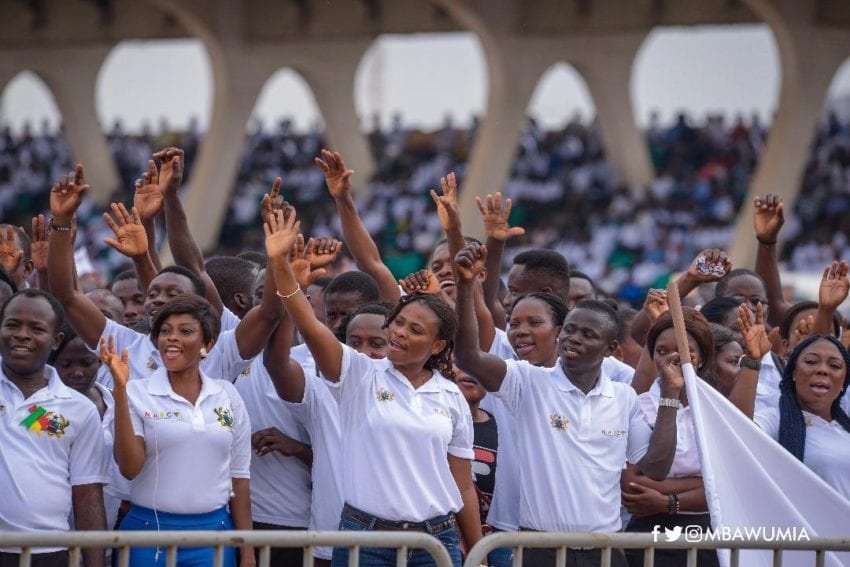
Political parties have a significant influence on our lives and prospects as young people in our nation. Providing some statistics concerning this impact, as well as a narrative about how it influenced young children.
First, let us look at some of the facts. According to a recent study by the Center for Democratic Development, over 60% of registered voters in Ghana are under the age of 35. That means the youth make up the majority of the electorate. However, when it comes to positions of power in our political parties and government, the youth are vastly underrepresented. Less than 5% of Members of Parliament and regional ministers are under 40 years old. This shows that while we hold significant voting power, our voices are not being heard in decision-making.
As the youth, it is believed that we are the most impressionable and readily persuaded population as youth. Political parties are aware of this and aggressively recruit young people to assist them in campaigning and propagating their views. Every election cycle, political parties have youth wings and university campaigns. The idea is to arouse our enthusiasm for their ideology and programs so that we can vote for them and persuade our peers to do the same. Some people utilize compulsion and intimidation. Others use financial incentives, scholarships, or employment to attract foot troops. This political exploitation of the Youth very is alarming.
First of all, a tale to demonstrate how this influence may have a detrimental impact on people’s lives. Kwame was an intelligent young guy from a tiny hamlet who aspired to be a teacher. In senior high school, he joined the youth wing of his uncle’s political party to assist with election campaigns. Kwame was a natural leader, and his oratory abilities wowed local party officials. They promised him a scholarship if he kept campaigning full-time after graduation. Kwame accepted the opportunity instead of applying to college because he was eager to continue his knowledge. He committed himself to the party for the following few years. The promised scholarship, however, never materialized after they lost the next elections. By then, it was too late for Kwame to apply for university on his own. Feeling used and betrayed, he lost all hope for his dreams.
This is just one example but there are many other Ghanian youth whose futures have been negatively impacted due to relying on empty political promises instead of their own merit and hard work. The manipulation of youth for party interests above the country can have long-lasting effects on individuals and society. It breeds cynicism and distrust in the political system.
In the words of Kofi Annan, “Young people should be at the forefront of global change and innovation. Empowered, they can be key agents for development and peace. If, however, they are left on society’s margins, all of us will be impoverished.” I urge you all to reflect on how we can empower ourselves and each other to reach our fullest potentials beyond petty party affiliations that seek only to exploit us.
While the influence of party politics has negatively impacted many Ghanaian youth, there is hope if we take action. We must recognize that we hold the power in our hands – the power of our votes and our voices. When we stand united, we form an unstoppable force that can enact real change.
There are steps we can take to shift the narrative from one of exploitation to empowerment. First, we must educate ourselves and our peers on the issues, not just party rhetoric. We need to look critically at policies and track records, not empty promises. An informed electorate cannot be so easily manipulated.
We also need more active youth participation and representation in politics. We should run for positions in student leadership and eventually national government. By gaining decision making roles, we ensure our priorities and solutions are heard. Organizations like the Youth Bridge Foundation are equipping youth with the skills and resources to do just this.
On an individual level, we must pursue our dreams and ambitions through merit, not reliance on political favors. Work hard in school, develop marketable skills, and take advantage of programs that support entrepreneurship and innovation among youth. When we empower ourselves through education and skills training, no one can use the lure of opportunities to control us for their agenda.
Finally, we must hold our politicians accountable. Demand transparency in how public funds for youth programs are spent. Call out empty promises and vote out those who fail to deliver. Through civic engagement and the ballot box, we can influence politics instead of being influenced. A united youth voice is difficult to ignore.
This country’s destiny is in our hands. We have the resources and the potential to transform Ghana for future generations. However, we must believe in ourselves regardless of what any political party says. We must fight for our aspirations and rights. And we must fight to create a legacy of empowered, educated young people who will never again be used as puppets in someone else’s game. When we achieve this, the effect of party politics on Ghanaian youth will be history never to be remembered again.
